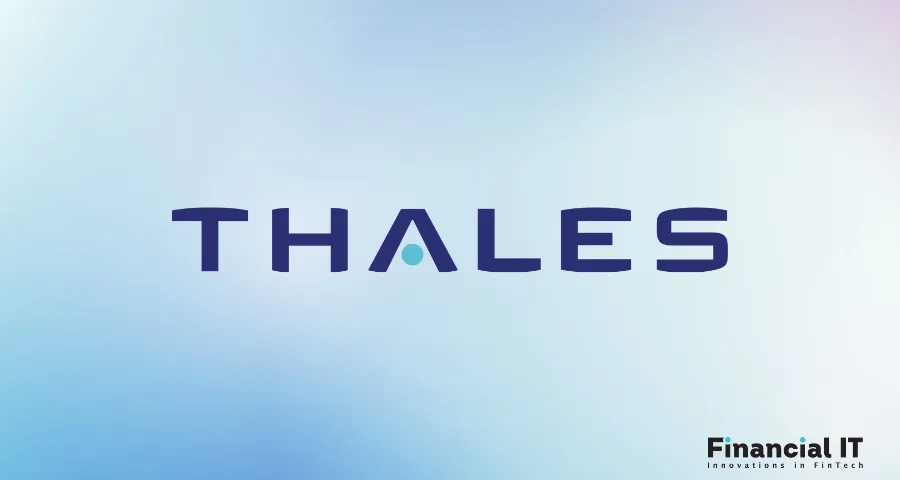
Digital Confidence Crisis: Thales 2025 Index Reveals Erosion of Global Trust in Online Services
In a stark reflection of shifting public sentiment toward online platforms, Thales has unveiled the findings of its 2025 Digital Trust Index – Consumer Edition, exposing a troubling global downturn in consumer trust across nearly all sectors of the digital economy. The comprehensive study, which surveyed over 14,000 consumers across 14 countries, paints a nuanced and often concerning picture of how individuals perceive the digital services they interact with daily—from banking and insurance to e-commerce, government portals, and social media.
The report’s central revelation is clear: trust in digital services is eroding across the board, with only a few sectors managing to hold steady or register modest gains. This decline reflects mounting concerns about data privacy, cyber threats, and perceived failures of companies to protect user information or deliver consistent digital experiences.
A Snapshot of Distrust
Compared to the 2024 edition of the Thales Index, this year’s results show a universal decline in trust for digital services, with only three sectors—banking, insurance, and government—managing to maintain or slightly improve their trust scores. In a sobering indication of consumer sentiment, not a single industry sector garnered trust from more than 50% of global respondents when asked if they believed their personal data was being handled responsibly.
The survey results are particularly concerning in light of the fact that nearly one in five people (19%) were directly informed that their personal data had been compromised within the past 12 months. As a result, a staggering 82% of global consumers reported abandoning a brand over the same period due to data privacy concerns.
This data breach experience, either firsthand or witnessed through the headlines, is evidently fueling a broader crisis of confidence that spans industries, geographies, and generations.
Trust Leaders and Laggards
Despite the broad decline, the banking sector managed to retain its spot as the most trusted industry, marking the second consecutive year it has topped the rankings. However, even within this relatively stable sector, deep demographic divides have emerged. The trust gap between age groups is striking: while 51% of consumers aged 55 and older express trust in banks’ handling of personal data, only 32% of Gen Z respondents (aged 16-24) feel the same. This generational trust divide may reflect younger consumers’ heightened awareness of digital risks, or a general skepticism toward traditional institutions.
Government organizations, despite often being viewed with skepticism, surprisingly registered the only sector-wide improvement in trust, increasing from 37% in 2024 to 42% in 2025. This rise may be attributed to ongoing digital modernization efforts, improved cybersecurity postures, or effective public messaging around privacy and data protection.
At the other end of the spectrum, news media organizations ranked lowest, with a paltry 3% of consumers identifying them as trustworthy stewards of their data. Close behind were social media platforms, logistics providers, and automotive companies, each scraping just 4%. These numbers point to a pronounced trust deficit in sectors reliant on large-scale data collection and algorithmic personalization, suggesting that more transparency and accountability may be needed.
Consumer Concerns and Expectations
Underlying this dramatic loss in digital trust is a complex web of consumer expectations, frustrations, and fears. Thales’ research reveals that 86% of consumers expect some level of privacy protection when engaging with digital services, yet many feel those expectations are being unmet.

In fact, 63% believe the burden of data protection rests too heavily on consumers themselves, indicating that individuals often feel unsupported by the platforms and services they rely on. This concern is reinforced by the finding that over one-third of respondents (37%) said they share personal data only because it is required to access a service, not because they trust the organization behind it. By contrast, only 34% of users stated that they feel confident that companies use their data responsibly.
The experience of data sharing has become increasingly transactional and compulsory, rather than rooted in mutual trust. Many users are aware that their data is being harvested and monetized, and feel powerless to stop it—except by walking away. And walk away they do.
The Hidden Cost of Poor Digital Experiences
While data privacy remains a key driver of consumer distrust, digital experience also plays a crucial role in shaping attitudes. Consumers voiced significant frustration with common e-commerce and digital service experiences, particularly when bad bots and automated systems manipulate pricing, availability, or access.
A full 33% of survey respondents reported negative experiences such as being kicked out of virtual queues, encountering dynamic pricing anomalies, or suffering through website outages and slowdowns. These disruptions not only undermine confidence in the service provider but also reinforce skepticism that companies are not acting in users’ best interests.
Trust, it turns out, is not just about what companies do with your data—it’s also about how they treat you during the digital journey.
Rebuilding Trust Through Technology
In the face of this global trust recession, consumers have made one thing clear: they’re not anti-technology—they’re anti-vulnerability. In fact, 64% of survey participants said their trust in a brand would significantly increase if it adopted emerging security and identity tools such as:
- Passwordless authentication
- Biometric verification
- Multifactor authentication (MFA)
- Ethical use of AI in customer interactions and security
These preferences highlight an important path forward for businesses: investing in customer-facing cybersecurity measures isn’t just a technical choice—it’s a strategic one.
As John Tolbert, Director of Cybersecurity Research at KuppingerCole Analysts, noted in the report, “The global decrease in digital trust is not only quantifiable but preventable. Deploying modern Customer Identity Access Management (CIAM) systems, Fraud Reduction Intelligence Platforms (FRIP), and data privacy protection tools, while also prioritizing user experience, can result in better outcomes for both businesses and their customers.”
Tolbert’s remarks underscore the importance of building privacy and security by design, rather than treating them as afterthoughts or compliance checkboxes.
A Broader Context of Digital Transformation
The release of the 2025 Digital Trust Index comes at a critical time. As organizations around the world double down on digital transformation, the ability to secure consumer trust is becoming a differentiating factor, not just a compliance necessity.
In regulated industries like banking, insurance, and government services, improvements in cybersecurity and transparency appear to be paying dividends. But for less regulated sectors—such as media, e-commerce, and social platforms—the pressure is mounting to deliver meaningful reform that aligns with shifting consumer expectations.
Consumers now demand more than catchy marketing or sleek UX—they want proof of accountability. This includes clear consent mechanisms, transparent data usage policies, robust identity protections, and proactive communication in the event of breaches or system failures.
What Brands Need to Learn from the 2025 Index
The message from Thales’ research is not one of doom, but of opportunity and urgency. Brands that invest in rebuilding trust Thales today stand to win in a future where digital interactions are only becoming more frequent, personal, and high-stakes.
Some key takeaways for businesses include:
- Trust is earned, not granted: In the age of data breaches and AI-driven decision-making, trust must be actively cultivated and maintained.
- Security is customer experience: Clunky authentication processes and privacy-invading tactics erode trust even when they’re intended to enhance security. Balancing friction with protection is essential.
- Transparency matters: Consumers are willing to share data—if they understand what it’s used for, how it’s protected, and what value they get in return.
- Technology is a trust enabler: Biometrics, AI, and modern authentication tools can make consumers feel more secure, provided they are used ethically and transparently.
About the Research Methodology
The 2025 Digital Trust Index was compiled based on research conducted by Censuswide, in partnership with The Red Consultancy, on behalf of Thales. The Thales study gathered responses from 14,009 individuals across 14 countries, including Australia, Brazil, Canada, France, Germany, India, Japan, Mexico, the Netherlands, Singapore, Sweden, UAE, the UK, and the US.
All Thales research conducted adhered to the Market Research Society (MRS) Code of Conduct and aligned with ESOMAR principles, ensuring ethical data collection, participant privacy, and statistical reliability.
About Thales
Thales (Euronext Paris: HO) is a global leader in advanced technology innovation across defense, aerospace, cybersecurity, and digital identity sectors. With a footprint spanning 68 countries and a workforce of over 83,000 employees, the Thales company generated €20.6 billion in revenue in 2024. Thales invests more than €4 billion annually in R&D, with a strong focus on next-generation technologies including AI, quantum computing, secure cloud infrastructure, and cybersecurity solutions for critical environments.
Final Thoughts
Thales’ 2025 Digital Trust Index is more than a snapshot of consumer sentiment—it’s a wake-up call. As the digital economy continues to Thales expand and intertwine with everyday life, trust will be the currency that determines which brands succeed and which falter.
For companies across every sector, the path forward is clear: prioritize digital trust now, or risk being left behind in a marketplace where privacy, security, and transparency are non-negotiable.




